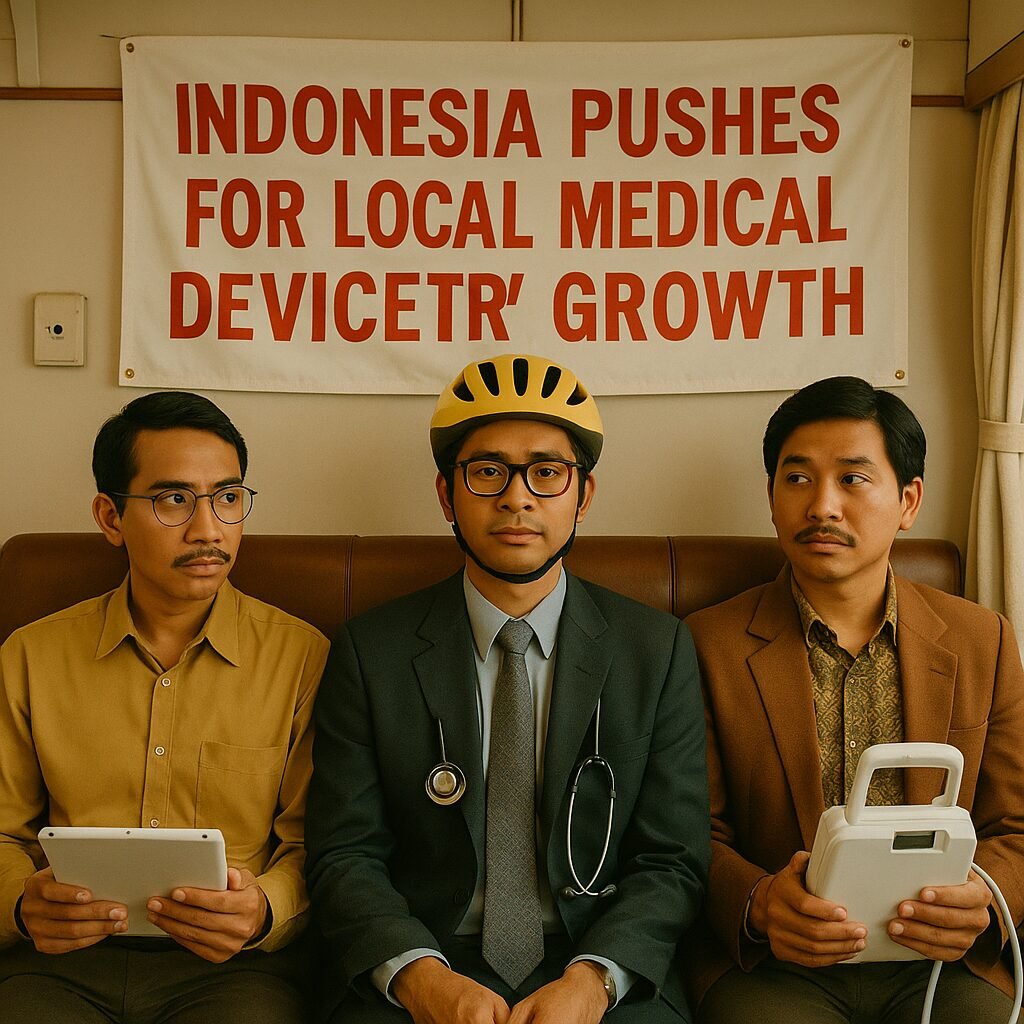- Indonesian government emphasizes boosting domestic medical device industry for economic growth and self-reliance.
- Indonesia aims to reduce reliance on foreign markets by fostering import substitution in medical devices.
- Challenges include lack of technology and skilled labor, but benefits include job creation and innovation.

The Indonesian government has recently emphasised its commitment to bolstering the domestic medical device industry. This move, as reported by ANTARA News in an article titled “Indonesia urges local industry to cut medical device imports”, is a proactive effort to foster import substitution, stimulate job creation, and facilitate technology transfer within the country.
By urging local industries to cut medical device imports, Indonesia aims to reduce its reliance on foreign markets, a strategy that could potentially strengthen its economy in the long run. This aligns with a broader global trend towards economic nationalism, where countries seek to protect and grow their domestic industries against international competition.
However, this initiative does not come without challenges. The domestic medical device industry may face hurdles such as a lack of advanced technology, insufficient skilled labor, and regulatory barriers. Overcoming these obstacles will require substantial investment in research and development, vocational training, and regulatory reform.
Nonetheless, the potential benefits of this policy could be significant. Import substitution can help to build local expertise, foster innovation, and create jobs. Furthermore, by developing its own medical device industry, Indonesia could also improve access to healthcare for its population, particularly in rural and remote areas where imported medical devices may be prohibitively expensive or difficult to obtain.
This move by the Indonesian government underscores the importance of strategic planning in economic development. By focusing on an industry which not only has a direct impact on the health and well-being of its citizens, but also has potential for significant economic growth, Indonesia is demonstrating a forward-thinking approach to national policy-making. As the situation develops, it will be interesting to monitor how these policies impact both the Indonesian economy and healthcare sector.

